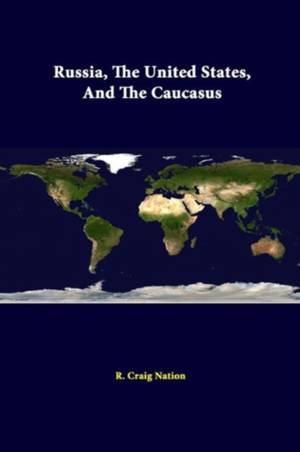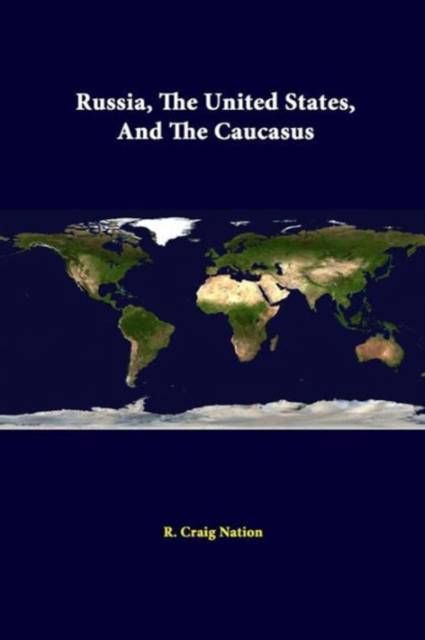
- Afhalen na 1 uur in een winkel met voorraad
- Gratis thuislevering in België vanaf € 30
- Ruim aanbod met 7 miljoen producten
- Afhalen na 1 uur in een winkel met voorraad
- Gratis thuislevering in België vanaf € 30
- Ruim aanbod met 7 miljoen producten
Zoeken
Russia, The United States, And The Caucasus
R Craig Nation, Strategic Studies Institute
Paperback | Engels
€ 20,45
+ 40 punten
Omschrijving
In the post-Soviet period, the Caucasus region has been a source of chronic instability and conflict: Unresolved "frozen conflicts" in Abkhazia, Southern Ossetia, and Nagorno Karabakh; continuing armed resistance in secessionist Chechnya and associated Islamic radicalism; the "Rose Revolution" in Georgia and Tbilisi's subsequent efforts to realign with the West; competition for access to the oil and natural gas reserves of the Caspian basin-these kinds of factors and more have ensured that the region would become and remain a source of significant international engagement and concern. Professor R. Craig Nation's monograph highlights the kind of conflicting interests that have made Russian-American relations in the region highly competitive. But he also addresses areas of shared priorities and mutual advantage that provide a potential foundation for more benign engagement that can work to contain conflict and head off further regional disintegration.
Specificaties
Betrokkenen
- Auteur(s):
- Uitgeverij:
Inhoud
- Aantal bladzijden:
- 50
- Taal:
- Engels
Eigenschappen
- Productcode (EAN):
- 9781312298682
- Verschijningsdatum:
- 22/06/2014
- Uitvoering:
- Paperback
- Formaat:
- Trade paperback (VS)
- Afmetingen:
- 152 mm x 229 mm
- Gewicht:
- 86 g

Alleen bij Standaard Boekhandel
+ 40 punten op je klantenkaart van Standaard Boekhandel
Beoordelingen
We publiceren alleen reviews die voldoen aan de voorwaarden voor reviews. Bekijk onze voorwaarden voor reviews.











